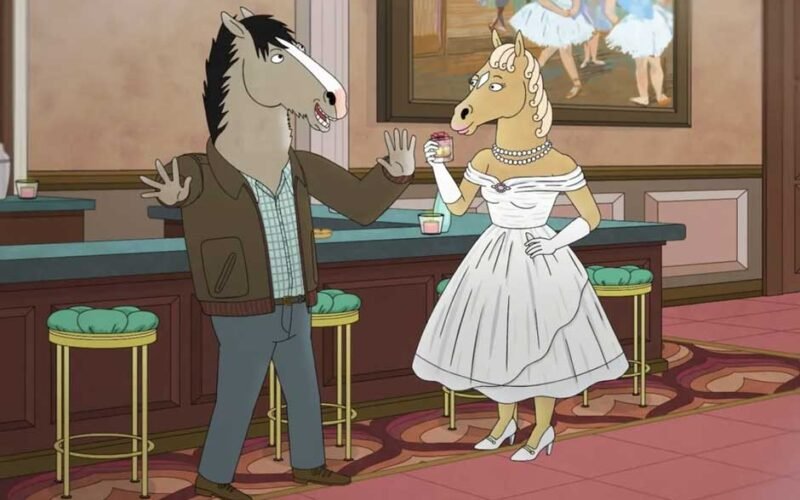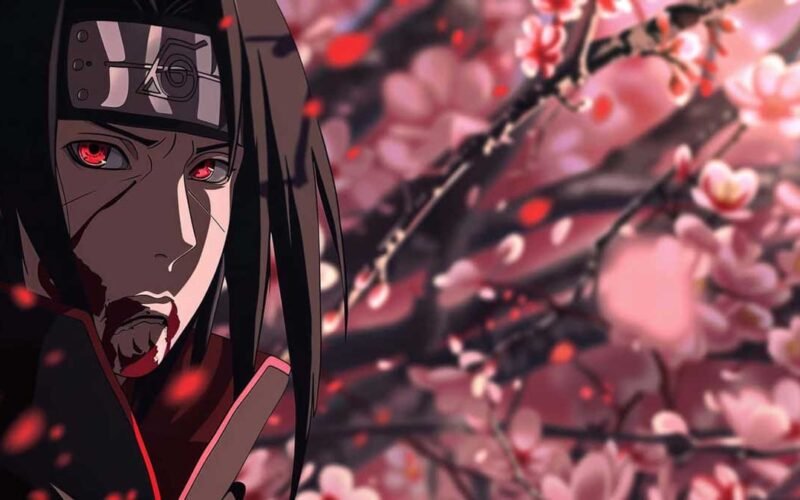At first glance, Netflix’s BoJack Horseman might seem like just another animated comedy featuring anthropomorphic animals. But underneath the neon colors and zany premises lies an exploration of mental well-being, relationships, fame, and humanity itself. Over its six seasons, BoJack Horseman has become one of the most relatable shows of the modern era, resonating with viewers in ways few series can.
The Premise: Hollywood Satire Meets Existential Drama
BoJack Horseman follows the titular character, a washed-up 90s sitcom star, as he struggles to navigate life in Hollywood—or “Hollywoo,” after a sign-altering mishap. A horse, BoJack, lives in a world filled with humans and anthropomorphic animals, combining the absurd with the all-too-real.
The show pokes fun at celebrity culture and Hollywood shallowness on the surface. But at its core, it’s a character study of BoJack himself: a flawed, often dislikeable protagonist struggling with addiction, depression, and the haunting effects of his past actions.
Why BoJack Horseman Resonates
What sets BoJack Horseman apart is its raw comedy on life’s messiness. The show does not shy away from hard truths, offering viewers a mirror to their own struggles.
Relatable Themes
From imposter syndrome to self-destructive tendencies, BoJack Horseman explores issues many people face but rarely discuss openly. And its nuanced portrayal of depression demonstrates that recovery is not linear and that personal growth usually comes with setbacks.
Flawed, Human Characters
Every character in the show—human or otherwise—feels real. Be it the eternally optimistic Labrador, Mr. Peanutbutter, or the workaholic Princess Carolyn, they all have layers and flaws that make them relatable. Even the show’s comic relief, Todd Chavez, grows into a character with his own meaningful arc, including his exploration of asexuality.
Humor with Depth
While the show tackles heavy topics, it does so with wit and humor. Visual gags, wordplay, and pop culture references keep the tone from becoming too bleak, ensuring that each episode is both thought-provoking and entertaining.
The Show’s Evolution
One of the most remarkable aspects of BoJack Horseman is its ability to evolve. What is intended as a satire of fame quickly becomes a meditation on redemption and accountability. BoJack faces his mistakes, tries to change, and wonders if he deserves forgiveness.
As the series progresses, it challenges viewers to examine their own boundaries: How much should we excuse someone’s behavior because they are hurting? When do their actions outweigh their intentions?
The Impact of Bo Jackman
Few expected the cultural impact it would have when BoJack Horseman premiered in 2014. It broke down barriers in how animation dealt with serious topics, showing that cartoons could be just as emotionally engaging as live-action dramas.
Its raw portrayal of mental health has started conversations and comforted those who see their struggles in BoJack’s. The show’s creators have also been praised for tackling topics like addiction, trauma, and systemic inequality with sensitivity and nuance.










